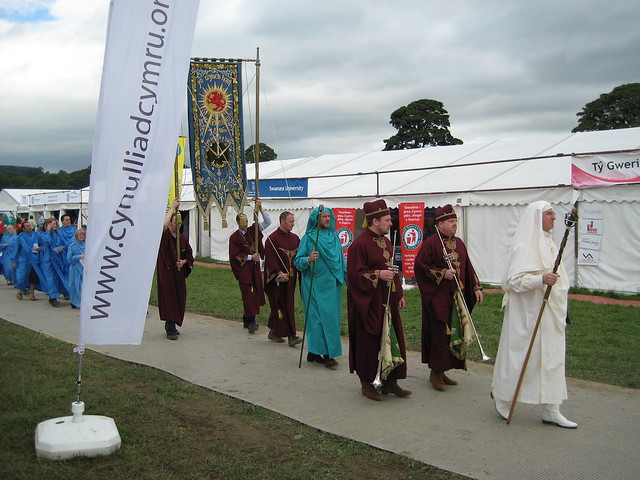Podcast: Play in new window | Download
In this episode we’re looking at words for bells, clocks and related things..
The Proto-Celtic word for bell was *klokkos, which comes either from the Proto-Indo-European *klēg-/*klōg- (onomatopoeia), or from *kleg- (to cry, sound) [source].
Descendants in the modern Celtic languages include:
- clog [klˠɔɡ] = bell, clock in Irish
- clag [kl̪ˠag] = bell; crash, loud noise in Scottish Gaulish
- clag = bell, clock, ball in Manx
- cloch [kloːχ] = bell, bell-shaped object, bubble; prize, feat; o’clock in Welsh
- klogh [klɔ:x / klo:h] = bell in Cornish
- kloc’h = bell in Breton
The Medieval Latin word clocca possibly comes from the same Proto-Celtic root. It meant bell from the 8th century, bell-shaped clock from the 13th century and clock from the 15th century [source].
Words from the same Latin root include cloche, cloak and clock in English, cloche (bell, cover, clot) and cloque (blister) in French, klocka (clock, watch, bell) in Swedish, and Glocke (bell) in German [source].
More details about these words on Celtiadur, a blog where I explore connections between Celtic languages in more depth. I also write about words, etymology and other language-related topics on the Omniglot Blog.
You can also listen to this podcast on: Apple Podcasts, Amazon Music, Stitcher, TuneIn, Podchaser, PlayerFM or podtail.
If you would like to support this podcast, you can make a donation via PayPal or Patreon, or contribute to Omniglot in other ways.










